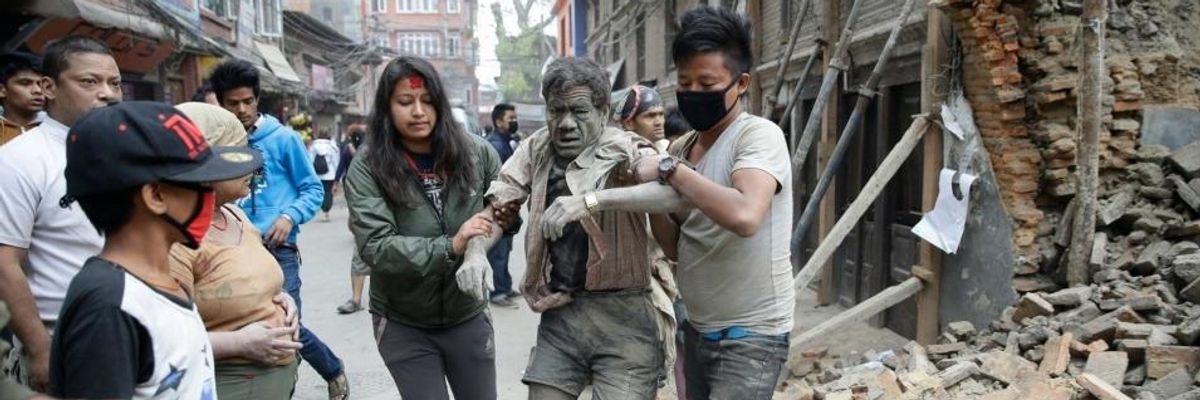Three years ago this April 25, Nepal was struck by a massive earthquake. Over 9,000 people lost their lives, another 22,000 were severely injured, and nearly 3 million people were thrust into a humanitarian crisis. The damages amounted to over 50% of the country's annual gross domestic product.
The United States has had an important role and obligation to play in the recovery. The two countries are bound together by migration, business and politics. The over 60,000 Americans of Nepali descent contribute to the economy, intellectual, social, and cultural life of the United States in profound ways. Nepal is 11th on the list of countries from which international students come to study in America. Nepal is situated between two geopolitical giants, India and China; as such, its path to recovery and democracy have broader, global implications.
A crucial component of the American humanitarian response was providing Temporary Protected Status (TPS) to Nepalis in America who could not safely return home. TPS, established in 1990 under the Immigration Act signed by President Bush, provides protection to foreign nationals residing in the United States whose return home would pose a safety risk, owing typically to war or natural disaster. With the prospect of non-renewal by the Trump administration of that status, 9,000 Nepali citizens with TPS face a perilous and uncertain future.
As a physician and epidemiologist who has worked in Nepal for over twelve years, I have seen firsthand the devastation and resilience of Nepali communities. I have also beared witness to the humanitarian crisis continues to unfold. Renewing TPS is a straightforward way of honoring them and owning our own responsibility as Americans to the collective health and security of our troubled globe.
Nepal is a country of enormous natural resources, history, cultural and linguistic richness. Nepal is not broken; Nepal is a place of hope and possibility. Nepal is not, in the words of our President, a "s&*thole" country. It is a country facing an ongoing humanitarian crisis that warrants support from the international community and renewal of TPS.
Non-renewal of TPS would be a grave diplomatic and moral mistake. Nepal has not yet recovered from the earthquakes, the recovery of which has been set back by political turmoil, a border blockade with India, and devastating floods and landslides. Only a fraction of the $4 billion in reconstruction money has been spent. America is bound by legal and international norms to protect individuals and families within its borders.
The globe we live in is complex, multi-polar, and fraught with peril. Conflict, forced migration, and authoritarianism are on the rise. Indeed, Nepal's own trajectory is counter to these global forces - a decade-long, brutal civil conflict ultimately led to the fall of the monarchy and the coming of a federal republic. Following the earthquake, Nepal signed a constitution and has, over the last year, conducted a series of local, state, and federal elections under this newly enshrined democratic framework. In spite of the ongoing humanitarian crisis, its democratic traditions, unlike that of many other countries, are going in a positive direction.
The United States, particularly as its diplomatic relations with neighboring China are soured by a trade war provoked by the Trump administration, needs to provide positive, engaged influence in Asia. This is vital for America to thrive economically and to advance our collective security interests.
Renewing TPS for Nepal is the morally right thing to do. The Catholic Legal Immigration Network, along with other groups, has made a compelling case for TPS renewal for Nepal. TPS is a critical tool of the US government in promoting democratic values and the common good. The Nepalis under TPS have families here and contribute to the economy. Our support and welcoming of them are a cost saving (given the macroeconomic benefits of immigrant communities) way of supporting the country in a time of need. It is not yet safe for them to return. If we are guided by love and compassion rather than fear, the moral path is clear.




